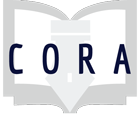Assignments
This an an active learning class using a jigsaw for teaching how to use Web of Science (25 minutes) and a modified Send-A-Problem (renamed Send Along) activity (15 minutes) that covers keyword brainstorming, practicing searching, evaluating the relevance of sources for a given topic, and considering whether that research topic is right-sized.
Play-based learning activity asking students to intentionally create "fake news" and engage with their emotional reactions in coming across information.
The literature review design (LRD) tool helps design a traditional review nested in the dissertation or thesis. It was created based on the interactive Hopscotch research design framework (Jorrin-Abellan, 2020).
Two librarians at NKU developed an Informed Voting workshop to help students navigate information during the 2024 election season. Attendees were provided a worksheet to learn about the candidates/issues on their ballot and dig into one issue/race to investigate during the workshop.
This is part of an introductory first-year class to the university where students are introduced to the library and asked to think critically about how information is organized using the framework of critical cataloging. After watching a short video on the idea of classification and its problems with fixing identity categories, students analyze and categorize selected book from the collection, and then reflect on how knowledge is organized and their choices as authors.
Algorithms are everywhere, and they have increasing power over what we consume (Amazon, Netflix, TikTok), who we date (“the apps”), and how we understand the world (Google, ChatGPT). So, what are algorithms, and how did they become so powerful? Who are the humans that create them, and why does it matter?
In this workshop, we will explore how algorithms can perpetuate bias and discrimination, and discuss some preventive strategies. It is open to learners of all backgrounds and experience.
This learning session, led by a librarian, is for first-year community college students in an academic library setting. The intention of this session is to scaffold onto existing research writing skills acquired in previous education, as well as use of popular video sharing platforms to obtain information, like TikTok. Informative videos produced by everyday people are a growing form of intellectual connection between all audiences and scholarly sources based on relatability, as well as visibility of marginalized issues larger news organizations do not address.
This library class was designed for the courses Scene Design and Technical Theatre. However, it can be adapted and used for courses that make use of digital archives and other types of digital objects to support their arguments.



